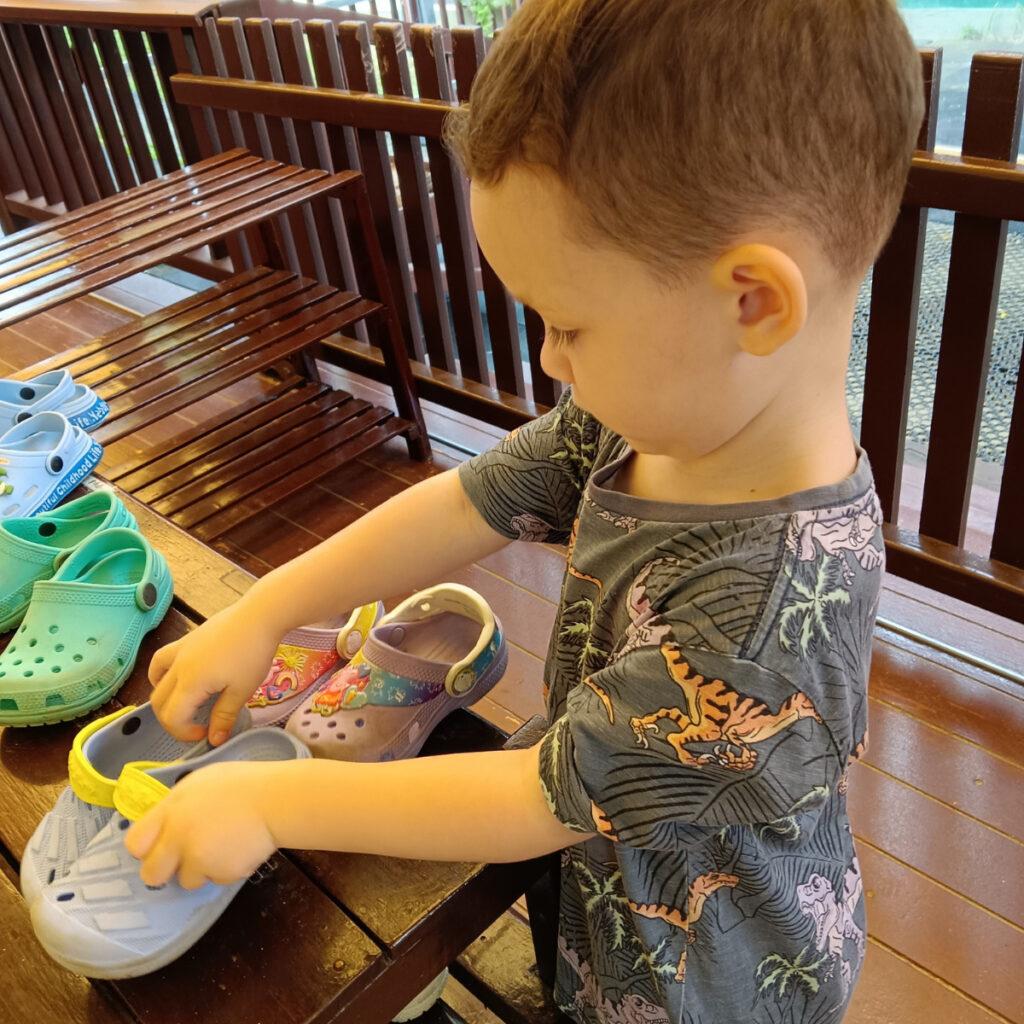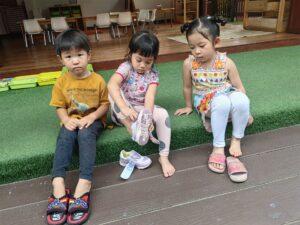By Nancy Sivilai
October 2025
Have you ever wondered how to help your child be more confident, positive, and
have a good feeling about themselves and others? Children need to know they are
lovable, important, capable and valuable. Building your child’s confidence happens
in the early stages of growth from people around them. Parents are a very
important influence, then as they go into the larger world, teachers, and peers.
Confidence in a child can be compared to a balloon and with just one word of
criticism it will collapse. I have included below ways to help build upon your child’s
confidence that are helpful in developing your child’s confidence.
- Using comparison and competition to motivate good behavior— for example, if we
say, “I wonder who can put on their shoes first?” or “Are you ready, why can’t you be
like your friend?” are examples of ways not to build your child’s confidence. The
best way to handle this is to compare only in relation to the child’s past performance
by saying, “Wow! you are better and better every time you try!
- Overhelping and Overprotecting Children—Helping your child may save time and get
the job done properly but the more desirable way is to wait and let your child do
things since it will allow him/her to experience accomplishment and independence.
Children feel more confident when they are able to do things by themselves. It
builds their self-esteem.
- Judging Children Within Their Hearing. The problem is that children often develop
ideas of who they are from comments such as , “You’re always slow, You’re too shy.
Additionally comments made over their head such as when telling others about their
child with child nearby and saying “My child doesn’t listen”, or “He/she is naughty
today”. Not only may this comment hurt a child’s feelings but they imply that the
child is not important enough to be included in the conversation. These types of
comments also invite the child to behave as mentioned, as the child is understanding
from their care giver that, “ I am naughty so I have to be naughty.”
- Right to be Different . To build your child’s positive confidence, we need to
accept each child for their right to be different from other children whether they be
ethnic, cultural or have disabilities and value them at whatever stage. We should
enjoy each child by never looking at them with critical eyes of what needs to be
improved. But rather be uncritical conveying trust and confidence in the child. This attitude instills in the child a feeling that adults have acceptance and approval of the child.
- Honest Recognition and Praise –For praise to be effective it should include
information about something specific a child has achieved. For example it is better
to say to a 4-year-old, “Thanks for sharing your toy with your friend, I see he really
enjoyed it” instead of “You are very nice!” Take time to comment favorably on what
your child had done. You can use encouragement with comments such as, “I bet
you can do it, if you try.”
- Respect. We can show respect to children by allowing them to make choices
then respecting your child’s decision when she has been given a choice. You are
saying to your child, what you want is important. I have confidence you know what
you want more than I do. We show respect to children when we listen carefully to
their replies when asking their opinion. Another way is to pay the child the
compliment of explaining the reason behind the rule. It assumes that the child is
important enough to be entitled to an explanation and intelligent enough to
comprehend it.
- Allow children to Experience Mastery by Making Choices and Being
Independent . Children need to make choices and decisions to do things for
themselves. This reduces the feelings of helplessness and increases feelings of
mastery.
- Provide Opportunities that are challenging but not excessively difficult. The
key is to offer play such as bike riding, lotto game, with repeated practice it will
increase competence. It is about providing chances for children to do something
more than once to become skillful. - Enjoy watching your child blossom in his confidence through the many
opportunities that come each day.













